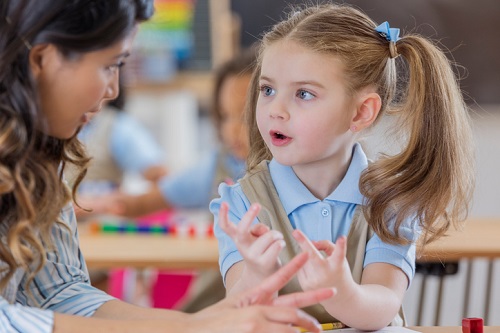
A targeted program has helped more than three-quarters of K-12 students in NSW private schools master key literacy and numeracy skills within a year.
The government-funded ‘Phase 2 Action Plan’ – rolled out by the Association of Independent Schools NSW (AISNSW) last year – helped 626 educators teach essential foundational skills to 6.354 K-2 students across 38 schools.
In the space of a year, 84.2% of Kindergarten students mastered the foundational phonological awareness skill of blending sounds to form words – up from 13.2% at the start of the year.
“The initiative has had an amazing impact on the students and teachers in the schools where it is being implemented so far,” Dr Geoff Newcombe AM, chief executive of AISNSW, said.
By the end of 2018 77.3% of Year 1 students were able to fluently read CCVC words (eg, chop, chip, ship) and CVCC words (eg, left, lift, melt) – up from 41.8% at the start of the year.
In the Year 2 classes that used the program, 74.3% of students correctly read CVCe words (e.g, ride, make, hope) – up from 29.8% at the start of the year. Equivalent growth was also recorded for students’ early numeracy skills.
Helping leaders create real change
The program includes instructional leadership masterclasses for principals and school leaders that are focused on evidence-based practices “to create effective and sustainable school change”.
School leaders are supported to evaluate their areas of progress as well as targets for ongoing development, with a continued focus on enhancing literacy and numeracy instruction.
There is also instructional coaching for school leaders to support class teachers with in-class practice and the collection and use of data, professional learning on early literacy and numeracy skills and access to digital tools that provide teachers with clear data about student achievement in early literacy and numeracy skills.
Workshops are also offered to help parents support their children’s literacy and numeracy development at home.
‘A resounding success’
“[The program] has been a resounding success because it ensures K-2 teachers are supported and equipped to teach foundational skills to students who would otherwise struggle with literacy and numeracy in their early years of schooling,” Dr Newcombe said.
“We are hopeful the NSW Government will extend the strategy’s four-year funding beyond 2020 so AISNSW can deliver Phase 3 of the Literacy and Numeracy Action Plan to the next group of schools in need.”
Dr Newcombe said the focus of the Phase 2 Action Plan has been the development of instructional leadership through activities that support each school’s specific context, while the other priorities – diagnostic assessment, tiered interventions and differentiated teaching – are also strengthened through co- contributions from schools.


